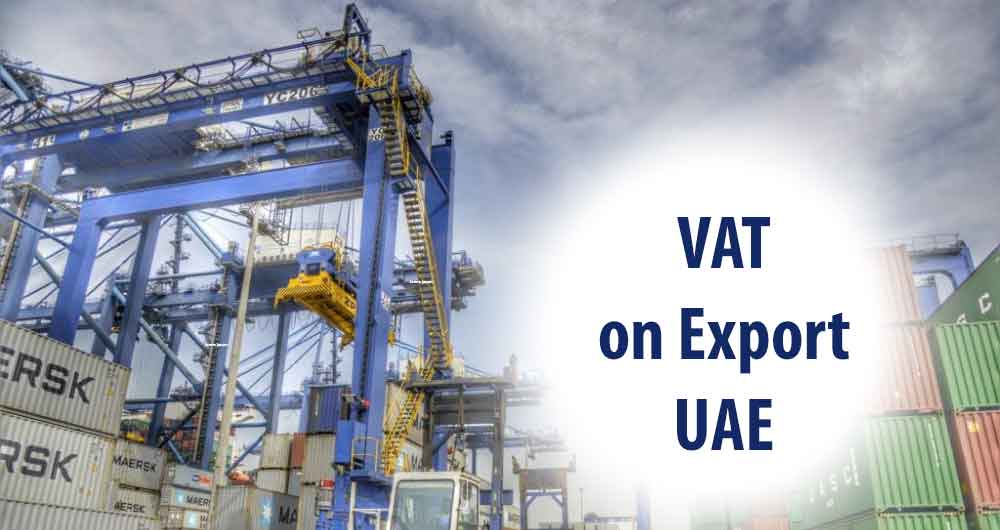VAT on Export in UAE
Value Added Tax is still a new concept to many people in the UAE. Moreover, the introduction of VAT is exceptionally a revolutionary decision in the business sector of the UAE.
Such business aspirants who want to start a business in the UAE must thoroughly understand the rules, regulations, and VAT applications.
The following article deals with the general points in VAT laws about exporting goods and services from UAE to help you start a business.
What Is VAT?
Value-Added Tax (VAT) is an essential tax payable while trading goods and services among two countries. In addition, the ultimate consumer of the goods and services generally pay VAT.
Likewise, it is collected in the destination country and delivered to the supplier country.
All the parties included in the process act as VAT collectors. Besides that, it also implies to the business owners and service providers.
Exporters and traders in UAE and Saudi Arabia must pay Value Added Tax (VAT) to exchange goods among the two neighboring countries. Moreover, VAT is collected according to terms and conditions settled by taxation experts of both the occupied countries.
VAT on export to Saudi Arabia from UAE is 5% per the rate-experts. This law started to impose on 1st January 2018 to collect VAT from the business owners inside and outside the UAE.
Rules And Regulation Of VAT On Export Of Services To Saudi Arabia From UAE:
The services connected with the VAT, its rates, and applicability vary depending upon many factors.
Standard Rated:
The standard rate of VAT is 5% which is implied on the local suppliers and traders. In addition, the businesses registered in the Federal Tax Authority of UAE pay the standard rate of VAT.
Besides that, the reserve charge basis implies traders from the GCC member countries or other countries outside the GCC.
Zero-Rated:
Federal Tax Authority of UAE includes some of the services in the zero-rated list. Therefore, authorities imply 0% VAT on these services.
Businesses dealing with such services must register their account and apply for tax returns. Moreover, FTA will return their submitted tax.
Considering Article 45 of Federal Decree-Law no. (8) of 2017 gives a clear image of the services included in the Zero-rated VAT members.
These services or areas include:
- Area of healthcare and the related paraphernalia and medical services.
- The educational sector consists of the goods and services for schools and higher educational institutions.
- Aircraft designed for charity purposes.
- Transport of goods and exchange of services outside the GCC.
- Investment in residential buildings or precious metals.
- Investment in crude oil or natural fuels.
Besides that, the exempt goods and services are declared as zero-rated VAT members. The difference is, they do not have to register in the Federal Tax Authority of UAE and do not need to file tax returns.
The areas included in the VAT exempt category are:
- Finance, including life insurance and other financial activities of the state.
- Local transport system for the passengers.
- Bare land or any residential building other than zero-rated category.
Why UAE Does not Put Tax On All The Trading Services:
There are three main reasons.
- The area of finance and its related services are too complex to be taxed.
- Likewise, VAT applies to something advantageous, and bare land is not one.
- While there are many services and investment areas, the traders and business owners benefit the country and its government. So, they do not tax them to facilitate their business and make trading easy.
Benefits Of VAT Implication For UAE:
VAT is an efficient and appropriate way of increasing a country’s revenue through trading, investments, and services. After applying VAT in the UAE, it has enabled the country to enhance its GDP by 1.5 percent.
Final Verdict:
VAT is simply a cost you have to pay for trading in a particular country. A perfect VAT system requires a responsible attitude of the government, FTA, business owners, and consumers towards their management and duties.
Moreover, FTA collects VAT and observes the businesses on behalf of the government. Federal Tax Authority tends to increase the trading revenue of the country through VAT.
Hence, they are trying to make their economy stronger and triumphant by implying VAT in their trading and economic system.


